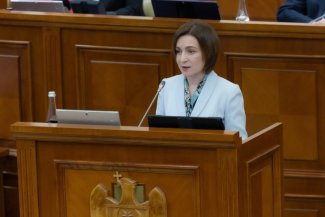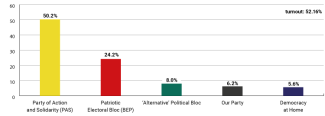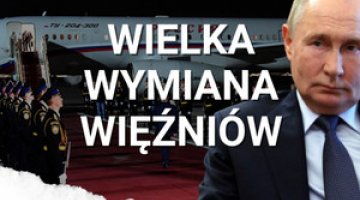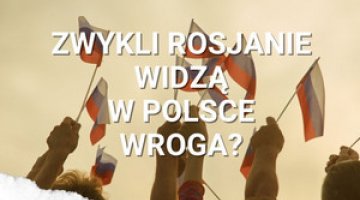Election in Moldova: PAS wins an outright majority once again

On 28 September, a parliamentary election was held in Moldova, in which the ruling pro-European Party of Action and Solidarity (PAS), linked to President Maia Sandu, won with over 50% of the vote. The pro-Russian Patriotic Electoral Bloc (BEP, which includes the Party of Socialists headed by former president Igor Dodon) came second with 24.2%, while the ‘Alternative’ Political Bloc – nominally pro-European but led by politicians previously active in parties linked to Russia – came third with 8%. Other parties entering Parliament are Our Party (6.2%), led by the pro-Russian populist Renato Usatîi and opposed to European integration, as well as Democracy at Home (PPDA, 5.62%), which is in conflict with PAS and advocates unification with Romania. Turnout was 52.16%.
The success of PAS – achieved despite the unprecedented scale of Moscow’s interference in the election campaign – will allow for the continuation of ongoing negotiations with the EU, as well as the reform and de-oligarchisation programme pursued by the pro-Western camp since 2021. The pro-Russian opposition will undoubtedly challenge the results of the vote and, in the coming days, attempt to organise anti-government protests. These, in turn, may be exploited by the Kremlin to escalate tensions and incite unrest.
Commentary
- The election result is a major success for PAS, which will retain an outright majority in Parliament (55 seats out of 101). This will enable the pro-European camp to continue the accession negotiations with the EU launched in 2024 and allow further implementation of the ambitious programme of structural reforms initiated immediately after the party took power in 2021, in particular, the reform of the judiciary.
- PAS’s outright majority was made possible thanks to the diaspora. Nearly 280,000 Moldovans voted abroad, accounting for more than 17% of all ballots cast – the highest figure in the history of parliamentary elections (212,500 in 2021). As many as 78.5% of emigrants supported the ruling PAS, meaning that over 27% of all its votes came from members of the diaspora.
- PAS achieved an outstanding result despite a marked increase in the cost of living during the last term. Although this was primarily a consequence of Russia’s actions linked to the full-scale invasion of Ukraine, it tarnished the government’s image and dragged down its approval ratings. Since the pro-Western camp took power, household gas prices nearly quadrupled – from 4.5 to 16.74 lei (approximately €0.85) per cubic meter – while electricity prices doubled. This led to a drastic surge in prices (up 67% over the past four years) and widespread impoverishment of the population. In 2024, the absolute poverty rate reached 33.6%, an increase of 6.6 percentage points compared with 2021.
- The result achieved by PPDA comes as a major surprise. This party, linked to the Romanian radicals of the national-conservative Alliance for the Union of Romanians (AUR), had been polling at around 2–3%. It seems that it owes its electoral success to the backing of AUR, which not only openly urged voters to support PPDA but, more importantly – according to press reports – also helped it to organise and run its social media campaign, sharing expertise and drawing on its extensive network of profiles and accounts. This unionist party, advocating the swiftest possible unification of Moldova and Romania, though politically pro-Western and pro-European, is also – like AUR – conservative and critical of progressive currents and narratives present in European discourse. It is also in open conflict with PAS. PPDA activists have accused the ruling party of monopolising the pro-European discourse, engaging in inefficient governance, practising political persecution, and even corruption (its leader has repeatedly spoken of the ‘PAS mafia’).
- Russia made an unprecedented attempt to influence the outcome of the election, reportedly allocating as much as €300 million for this purpose in recent months. The Kremlin focused primarily on the information sphere – through the media and social networks it claimed that Sandu and her party, acting on the orders of the West, were destroying relations with Moscow by supporting Kyiv and modernising the army, which it argued violated the country’s constitutional neutrality and dragged it into the war. Cyberattacks on infrastructure were also reported, including against the servers of the Central Electoral Commission (without affecting the vote). Via Ilan Șor, the oligarch who fled Moldova in 2019 and is now hiding in Moscow, Russia also provided financial support to pro-Russian parties. Two of them – the Heart of Moldova Republican Party, which is part of the BEP, and the Greater Moldova Party, running independently – were removed from the electoral lists just days before the vote, partly due to non-transparent financing.
- It cannot be ruled out that the pro-Russian opposition will refuse to recognise the election result. On Sunday, BEP leader Dodon called on government opponents to join a demonstration in the ‘defence of voters’ voices’. The opposition claims that PAS’s victory was the result of fraud and manipulation. They point out that the party did not win an outright parliamentary majority within the country itself (i.e. without the diaspora vote) and accuse the authorities of restricting the possibility of voting for Moldovan citizens living in separatist Transnistria (approximately 300,000 people) and in Russia (where only two polling stations were opened). They also argue that the removal of two pro-Russian parties from the electoral lists was a political decision with no legal basis. However, prolonged or large-scale protests are not expected. There is, however, a risk that demonstrations organised by the opposition could witness Russian-inspired provocations. On 28 September, Moldovan police detained three men linked to the security structures of Transnistria, who were heading to Chișinău with pyrotechnic materials. Shortly before the election, a group of 74 individuals were also arrested after reportedly undergoing training in Serbia that included, among other things, street fighting.
Chart. Preliminary election results

Source: Central Electoral Commission.





